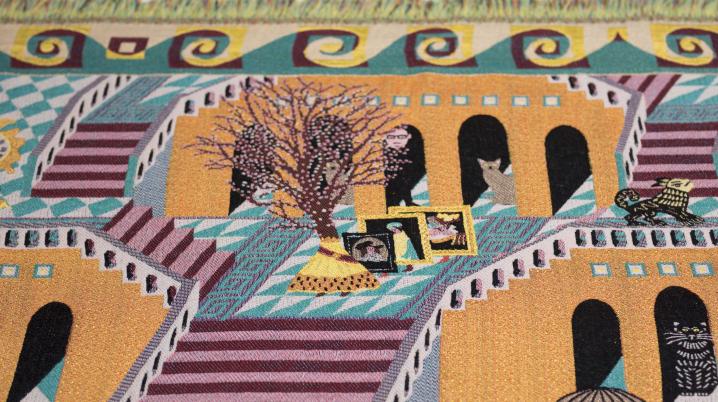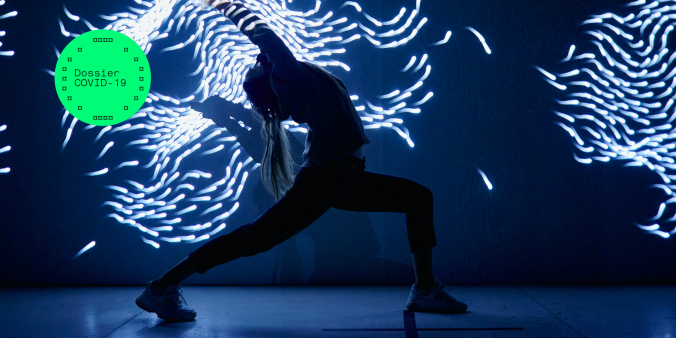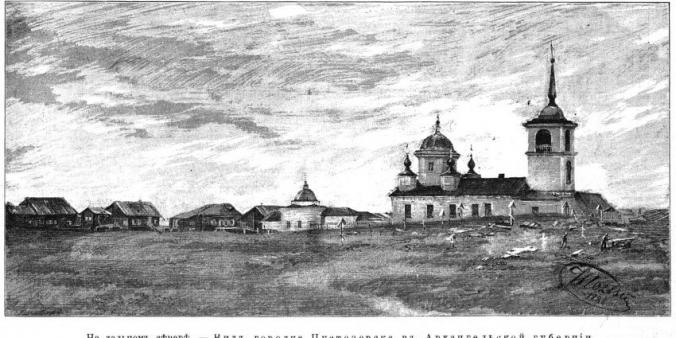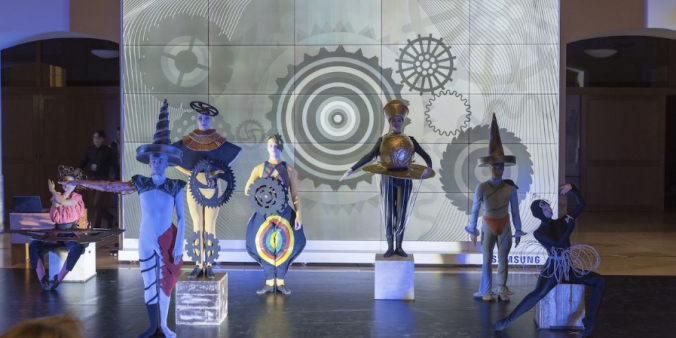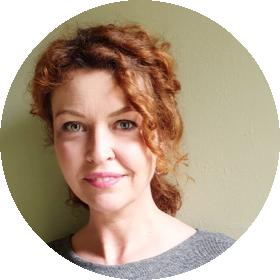
The third edition of the Dutch-Russian museum conference Sustainable Dialogues brings together professionals from the museums and heritage field in the two countries in order to contribute to the continuity of the cultural dialogue between Russia and The Netherlands.
For three days the participants will share their knowledge of the latest developments in exhibition-making, outreach and community building with their colleagues as well as a broader audience. Best practices, approaches and challenges will be discussed by museum directors, curators, educators and other professionals. The presentations and discussions will reflect on some of the most significant challenges faced by professionals both in Russia and in the Netherlands: how do we build truly multi-voiced exhibitions, how can we strengthen our communities during the global COVID pandemic, and how do we respond to the environmental challenges of today?
Programme
Please note: time indications are in CEST (Amsterdam time).
For Moscow Standard Time add one hour to the below indicated times.
Monday 4 October
09.00 – 09.45: General Opening. The Necessity of a Dialogue
The opening session brings together representatives of the cultural fields of the two countries to discuss the continuity of the cultural dialogue in these challenging times. Why is the dialogue needed, how can we keep it going and what are the most urgent issues we need to discuss?
Moderator: Marcel Feil, head of International Cultural Policy and Coordination at DutchCulture - centre for international cooperation, Amsterdam
Participants:
Renee Jones-Bos, chairman of the board, Hermitage Amsterdam
Prof. Mikhail Piotrovsky, general director of the State Hermitage Museum (St. Petersburg), president of the Union of Museums of Russia;
Mikhail Shvydkoy, special presidential representative for international cultural cooperation;
Dewi van de Weerd, ambassador for international cultural cooperation, Ministry of Foreign Affairs of the Kingdom of the Netherlands
09.45 – 10.00: Break/questions
10.00 – 13.30: History in Museums: from Contested to Connected?
The speakers will share best practices in exhibition-making involving underrepresented and contested histories. They will exchange questions, considerations and methodologies and discuss them in the context of international collaboration. This session aims to explore in more depth and to broaden the palette of multi-voiced practices and inclusive approaches used in exhibition-making. This session consists of two blocks.
Moderator: Sjeng Scheijen, author, Russian art specialist
Block 1. New Perspectives in Historic Exhibitions
10.00 – 10.10: Introduction: The State of the Khardzhiev Collection by Sjeng Scheijen, moderator
10.10 – 10.20: Museum in a Changing World by Elena Gagarina, general director, Moscow Kremlin Museums
10.22 – 10.32: 'Polyphonic Curating of Contested Heritage: the Golden Coach in the Amsterdam Museum' by Margriet Schavemaker, artistic director, Amsterdam Museum
10. 34 – 10.44: Shchukin & Morozov Collections: Exhibitions 2016-2022 by Ilya Doronchenkov, deputy director for research, Pushkin State Museum of Fine Arts, Moscow
10.46 – 10.56: The Exhibition Slavery at the Rijksmuseum by Maria Holtrop, curator of history, Rijksmuseum, Amsterdam
10.58 – 11.08 The Past Has Not Passed: Issue of Political Repressions by Sergey Kamensky, director, Ekaterinburg City Museum
11.10 – 11.20 Multimedia project Ural Mari. No Death by Alexander Sorin, independent producer, photographer
11.20 – 11.45 Discussion and Q&A
11.45–12.00 Break
Block 2. Openness as a Strategy
12.00 – 12.10: New Research of the Biography of Johan Maurits van Nassau-Siegen, the First Owner of the House by Martine Gosselink, director, Mauritshuis, The Hague
12.12 – 12.22: The Museum as a Lighthouse: How to Make the Invisible Visible by Anton Belov, director, Garage Museum for Contemporary Art, Moscow
12.24 – 12.34: Socialist Realism. Metamorphoses. Soviet Art 1927-1987. Problems of Representation, Contrasts of Perception by Alexandra Kharitonova, independent specialist and curator
12.36 – 12.44: Facts Without Artifacts? A Decade of Experience, Challenges, and Innovation at the Jewish Museum and Tolerance Centre in Moscow by Liya Chechik, chief curator, Jewish Museum and Tolerance Centre
12.46 – 12.53: A Museum Response to Contemporary Antisemitism by Emile Schrijver, director, Jewish Cultural Quarter
12.55 – 13.05: Emotional Networking as an Engagement Tool by Menno Welling, Reinwardt Academy
13.05 – 13.30: Discussion and Q&A
13.30 – 14.00: Break
14.00 – 17.30: Community Building in Times of the COVID-19 pandemic and Beyond.
In this session, we compare different strategies in addressing the greatest challenge of the past two years: the COVID-19 pandemic. The speakers will exchange their ideas on turning the challenges of the crisis into new insights and opportunities in the cultural sector. After all, the new approaches and methodologies might help us to strengthen community outreach, inclusion and multivocality in the post-COVID era. This session consists of two blocks.
Moderator: Irina Leifer, curator, educator, lecturer
Block 1. Outreach Strategies in Times of a Pandemic
14.00 – 14.05: Introduction by Irina Leifer, moderator of the session
14.05 – 14.10: Greater Hermitage – Concept and Project by Prof. Mikhail Piotrovsky, general director of the State Hermitage Museum (St. Petersburg), President of the Union of Museums of Russia
14.10 – 14.20: The Hermitage Amsterdam: Building Bridges by Annabelle Birnie, executive director, Hermitage Amsterdam
14.22 – 14.27: The Hermitage-Siberia Cultural and Educational Centre (Omsk) by Farida Bureeva, director, the Omsk M.A.Vrubel Museum of Fine Arts
14.28 – 14.33: The Hermitage-Ural Cultural and Educational Centre (Ekaterinburg) by Nikita Korytin, director, Ekaterinburg Regional Museum of Fine Arts
14.35 – 14.45: Online Programmes During Corona Lockdowns by Rianne Schoonderbeek, head of education, Drents Museum
14.47 – 14.57: The Actual Visit to the Museum: the Advantages of Online, the Attraction of Halls and Professional Reflection by Alexey Boyko, chief specialist in museum education, the State Russian Museum, Saint Petersburg
14.59 – 15.09: Museum of Self-Isolation, Case Study of the Exhibition by Anna Trapkova, director, Moscow City Museum
15.11 – 15.46: Discussion and Q&A
15.45-16.00 Break
Block 2. Bringing Polyphony to Community
16.00 – 16.07: Remaining Involved During Pandemics. Access and Diversity in the Pushkin Museum by Evgeniya Kiseleva, head of interdisciplinary projects, Pushkin Museum of Fine Arts
16.08 – 16.15: 100 Ways to Live a Minute. Remaining Involved During Pandemics by Anna Bouali, researcher and curator, Pushkin Museum of Fine Arts
16.17 – 16.27: OPEN PERMM: Experiments and New Museum Strategy in Times of COVID-19 by Nailya Allakhverdieva, director, Perm Museum of Contemporary Art - PERMM
16.29 – 16.39: Getting Intimate: Why We Need our Bodies to Understand Art History by Caro Verbeek, curator Mondrian and De Stijl, Kunstmuseum, Den Haag
16.41 – 16.51: What is the Future of the Biennial Format? by Alisa Prudnikova, founder and artistic director, Ural Industrial Biennale
16.53 – 17.03: Radical Positions, From and After Malevich by Rein Wolfs, director, Stedelijk Museum, Amsterdam
17.05 – 17.30: Discussion and Q&A
Tuesday 5 October
10.00 – 13.30: Art, Heritage and Environment: Looking into the Future
How can we reawaken our connectedness to our environment, how can we create a broader sense of urgency and what can be the role of the cultural sector in tackling this challenge? In this session, we learn about how museums and heritage institutions in the two countries create awareness of the importance of biodiversity, climate change and sustainability. This session consists of two blocks.
Moderator: Jasper Visser, project director, Stichting 2030
Block 1. Museum Strategies in Creation of Environmental Awareness
10.00 – 10.10: Introduction by Jasper Visser, moderator
10.12 – 10.22: Strategies of the Museum in Awareness Creation by Caroline Breunesse, Head of exhibitions, Naturalis Museum and Biodiversity Center, Leiden
10.24 – 10.34: Arctic Research in the Kunstkamera (Peter the Great Museum of Ethnography and Anthropology), Russian Academy of Sciences (St.Petersburg) by Andrey Golovnev, director, Kunstkamera (Peter the Great Museum of Ethnography and Anthropology), Russian Academy of Sciences (St.Petersburg)
10.36 – 10.46: Working-living in a Community with Art, Heritage and (more than) Humans in the “Water Defence Line” of Amsterdam by Zippora Elders, curator, director of Kunstfort bij Vijfhuizen
10.48 – 10.58: Environmental Challenges as Social Responsibility of a Museum by Yulia Glazyrina, deputy director on development, Perm Regional Museum
11.00 – 11.10: Being a Sustainable Museum by Michael Huijser, director, Het Scheepvaartmuseum
11.12 – 11.22: Exploring the Seashore: Academic Museum and Local Community by Lilia Kondrashova, head of learning projects, Museum of Vladivostok Sea Biology Research Institute, Russian Academy of Sciences
11.22 – 11.45: Discussion and Q&A
11.45 – 12.00: Break
Block 2. Sustainability and Heritage
12.00 – 12.10: The Museum as an Agent of Change by Errol van der Werdt, director, TextielMuseum Tilburg
12.12 – 12.22: Textile.Space: Remove a Fence Around the Factory by Yulia Krivtsova, director, Regional Agency for Creative Initiatives, Yaroslavl
12.24 – 12.34: Creating Liveable Spaces for the Future by Sjoerd Bootsma, artistic director, Arcadia Triënnale of Leeuwarden
12.36 – 12.46: Natural and Cultural Heritage Sites and Means of Improving Their Resilience to Recreational Pressures. UNESCO Project SUPER by Alexandra Smirnova, leading specialist, Department for International Cooperation, Karelian Research Centre of the Russian Academy of Sciences; Director, Association “Centre of the North, Arctic and Cross-Border Cooperation”, Petrozavodsk, Republic of Karelia
12.48 – 12.58: Fundamental Science and Social Agenda in the Polytechnic Museum. Borders and Frames by Natalia Sergievskaya, deputy director, Polytechnic Museum, Moscow
13.00 – 13.30: Discussion and Q&A
13.30 – 14.00: Break
14.00 – 17.00: Closed workshop and presentations with Russian and Dutch students and young professionals
The Sustainable Dialogues workshop is a closed session for Dutch and Russian students and young professionals with an interest in the convergence of the conference’s topics. During the workshop, the participants will discuss and reflect on each other's project proposals and learn from each other's practices with the help of two moderators.
Moderators: Mikhail Gnedovsky, expert in cultural policy and museum development, lecturer at the Moscow Higher School for Social and Economic Sciences, and
Mirjam Hoijtink, assistant professor and programme director, MA Museum Studies at the University of Amsterdam
Wednesday 6 October
10.00 – 12.45: Cultural Entrepreneurship - Expert meetings
The expert meetings bring together cultural policymakers, curators, museum and philanthropy experts to discuss the various aspects and challenges of creative entrepreneurship. The main topics of the meetings include strategies for social empowerment through cultural entrepreneurship; museums as cultural entrepreneurs; cultural policy and creative and socially responsible entrepreneurship; the motivation of cultural entrepreneurs; the complex relationship between museums and private parties. This session consists of two expert meetings.
Moderator: Johan Kolsteeg, assistant professor, Cultural Entrepreneurship and Cultural Leadership at Groningen University
10.00 – 11.15: Expert meeting 1: Bridging the Gap between the Public and the Private in the Museum Sector
Participants:
Gili Crouwel, artistic director, The Gallery Club;
Irina Prokhorova, founder, the Mikhail Prokhorov Foundation, director, NLO Publishers;
Beatrix Ruf, director, Hartwig Art Foundation;
Zelfira Tregulova, director, Tretyakov State Gallery;
Liza Savina, co-founder, Sparta Foundation;
Martine Wouters, head of development, The Hermitage Amsterdam
11.15 – 11.30 Break
11.30 – 12.45: Expert meeting 2: Motivations, Values and Opportunities in Cultural Entrepreneurship
Participants:
Lia Gorter, director, Cultural Inventory Foundation;
Olga Karpova, head of Career Development Courses, Moscow School for Social and Economic Studies;
Inna Prilezhaeva, director, Association of Cultural Managers;
Alexander Ramselaar, associate advisor, Cultuur+Ondernemen (Culture+Entrepreneurship);
Alice Roegholt, director, Museum Het Schip;
Alexandra Sankova, director, Moscow Design Museum;
Elena Zelentsova, head of Territorial Development Management at Russian Presidential Academy of National Economy and Public Administration, founder of the Creative Industries Agency, Moscow
12.45 – 13.00: Break
13.00 – 13.45: Closing Session
Moderator: Marcel Feil, head of International Cultural Policy and Coordination at DutchCulture - centre for international cooperation, Amsterdam
Participants:
Afanasy Gnedovsky, board member, former executive director of ICOM Russia;
Alexander Sholokhov, president of ICOM Russia;
Diederik von Bönninghausen, chairman of the board of ICOM Netherlands;
Representative of ICOM Netherlands (tbc);
The conference is a result of a collaboration between DutchCulture and the Embassy of the Kingdom of the Netherlands in Moscow and the Consulate-General in St.Petersburg. Co-produced by Anna Ostrovskaja and Natalia Kopelyanskaya. Special thanks to ICOM Russia and ICOM Netherlands.
